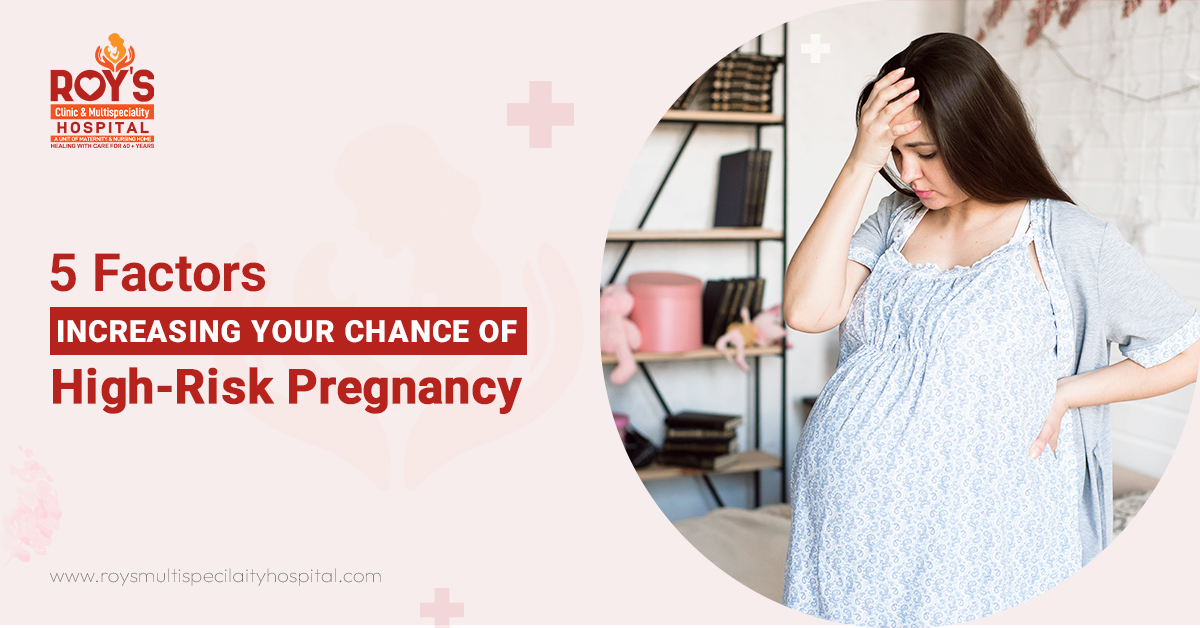While every pregnant woman carries risk, a high-risk pregnancy is a specific medical situation. It can be high blood pressure during pregnancy, age under 18 or 35 or over, obesity or underweight, multiple pregnancies, diabetes, or a genetic problem. You may consult your obstetrician at the best multispecialty hospital in Siliguri, North Bengal.
High-risk Pregnancy: Overview
A high-risk pregnancy is a health situation that puts the expectant mother or fetus or both at health risks. These pregnancies need close health monitoring under obstetricians/maternity doctors.
This extra medical care reduces the risk of pregnancy complications, like miscarriages, preterm birth, too much bleeding after delivery, low birth weight, birth defects, and stillbirth.
Here are five risk factors for a high-risk pregnancy; have a read:
1. Maternal Age
One of the most frequent causes of pregnancy risk is maternal age. Both women who are under 17 or over 35 carry pregnancy complications, called high-risk pregnancy.
Younger mothers (17 or below) may face pregnancy complications like pregnancy-related, high blood pressure, premature birth, premature labor, and low birth weight.
Mothers over 34 age have an increased risk of gestational diabetes, high blood pressure, chromosomal abnormalities like Down syndrome, miscarriages, premature birth, birth defects, stillbirth, etc.
2. Pre-existing Medical Conditions
There are pre-existing medical conditions that can put your pregnancy at risk of complications. These conditions include hypertension, diabetes, kidney disease, thyriod disorder, and heart disease. See your maternity expert at the best multispecialty hospital in Siliguri, North Bengal.
If you have any of these conditions, you need careful monitoring throughout pregnancy. Additionally, current mental health issues like anxiety, depression, panic attacks can interfere with pregnancies. Materiality doctors ensure proper care and advice to keep your pregnancy in a good state.
3. Multiple Pregnancies
Carrying more than one baby increases pregnancy risk, such as twins, and triplets. Multiple gestations put a mother at risk of early birth. In this case, baby babies are born before their organs or bodies completely mature.
Preterm labor, preeclampsia, gestational diabetes, problems with fetal growth, etc. are common in multiple pregnancies. Mothers with multiple pregnancies need more frequent prenatal care and specialized attention.
4. Lifestyle Factors
Lifestyle choices can affect pregnancy outcomes. Smoking, alcohol consumption, malnutrition, and illicit drug use can trouble pregnancies.
An unhealthy lifestyle may cause problems with fetal growth, preterm birth, and congenital issues in the baby. Additionally, too much stress can negatively influence this time, leading to headaches, a rise in blood pressure, loss of appetite, sleep issues, etc.
5. Pregnancy-related Complications
Some health issues arise during pregnancy, which increases pregnancy risk. These include gestational diabetes, high blood pressure during pregnancy, placenta previa, and previous preterm births.
A history of miscarriage or stillbirth or IVF failure is also a risk factor for future pregnancy. People who have been diagnosed with high-risk pregnancies also experience healthy pregnancy and delivery.
Talk to your medical healthcare provider to better understand what will serve your health. You might see the top obstetrician at the best high risk pregnancy hospital in Siliguri, Roy’s Clinic and Multispeciality Hospital.




.png)

Comments